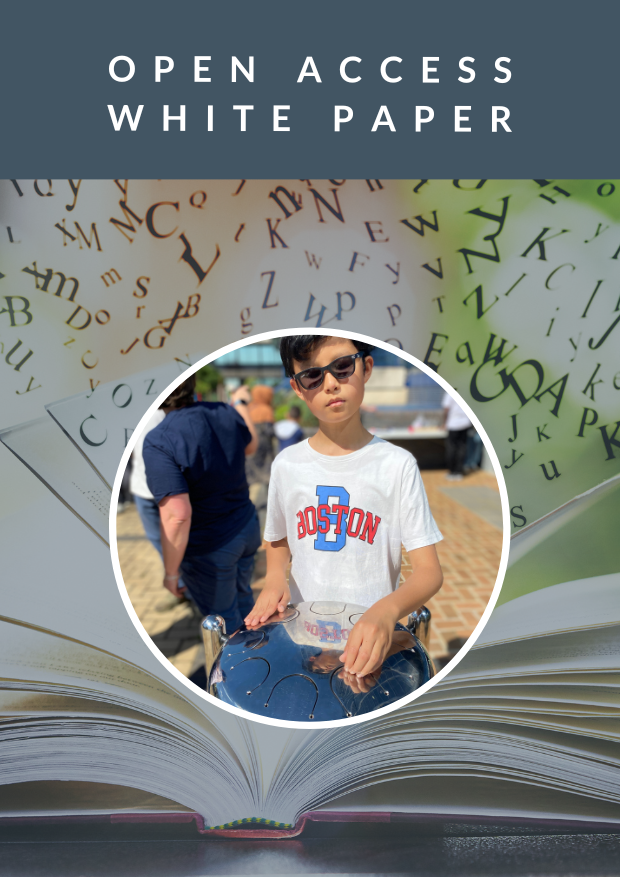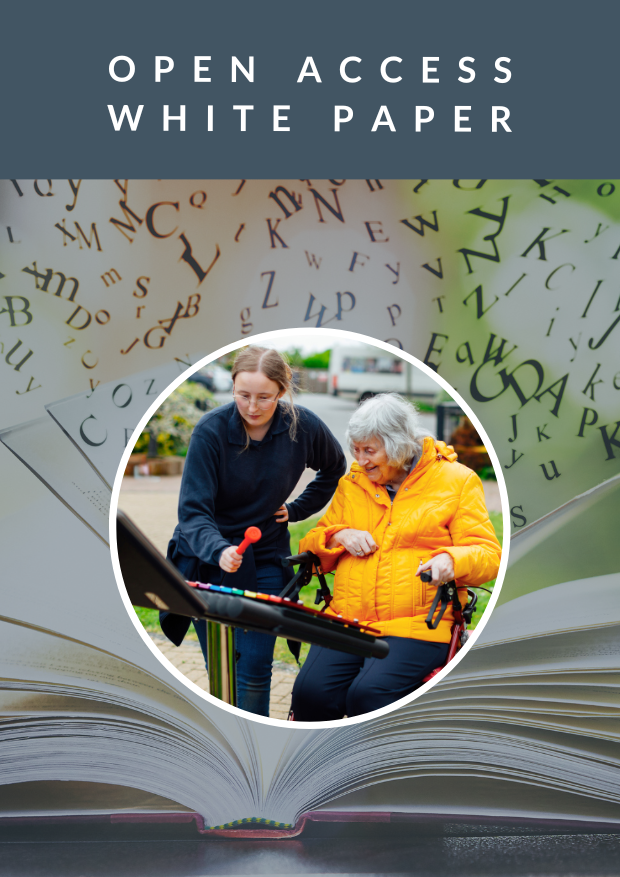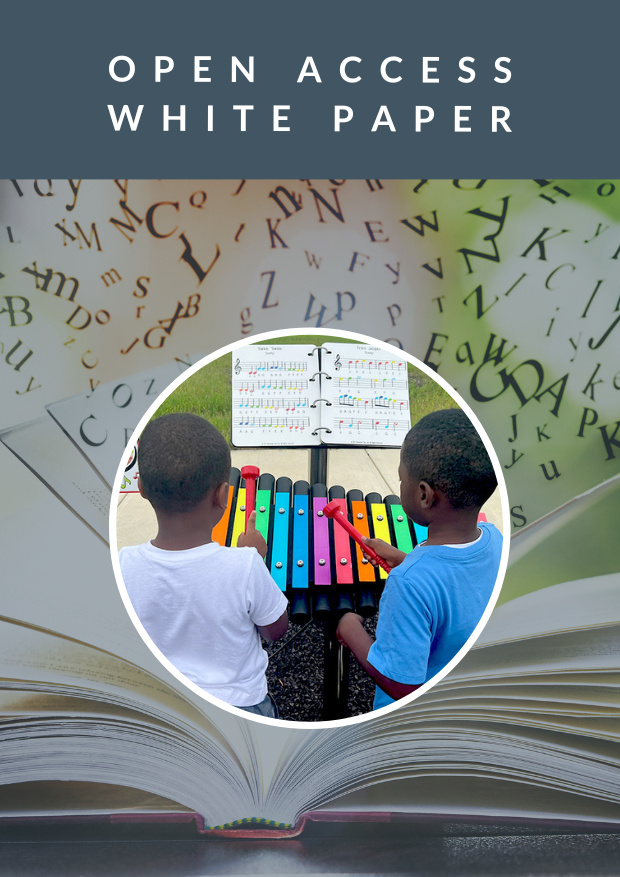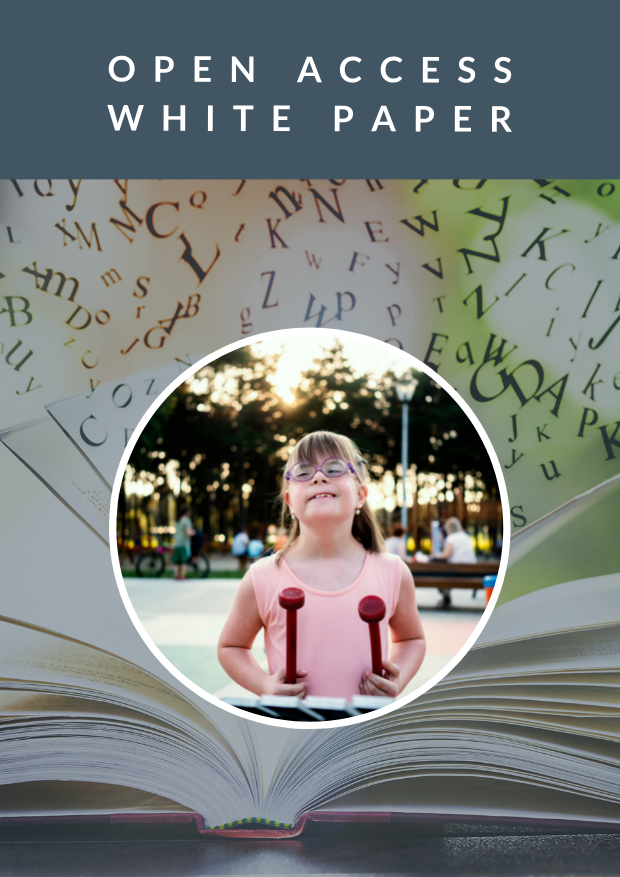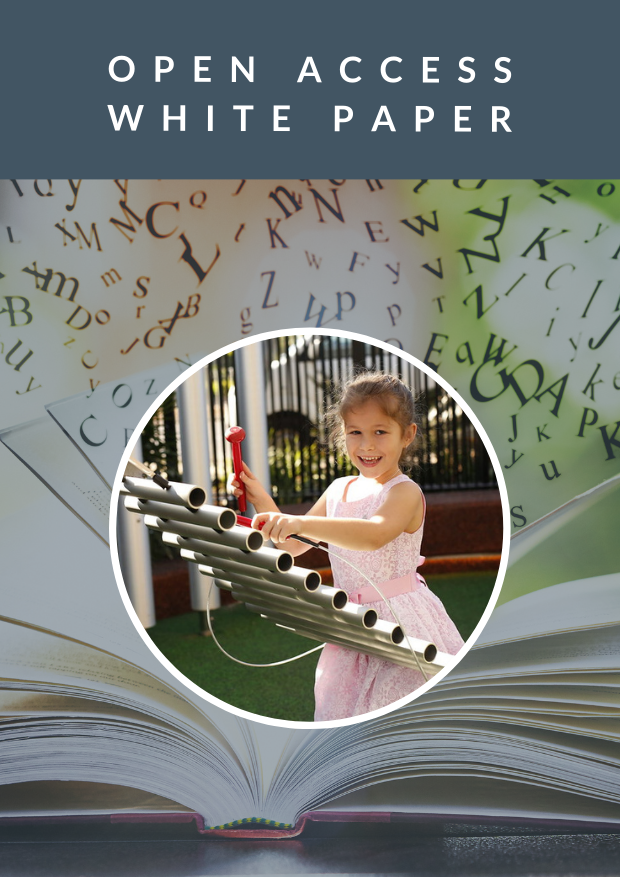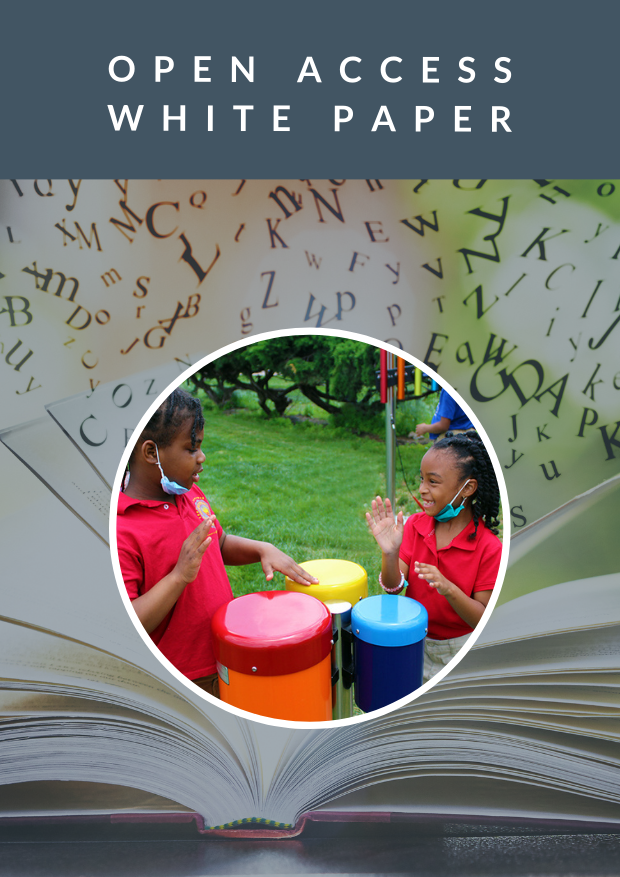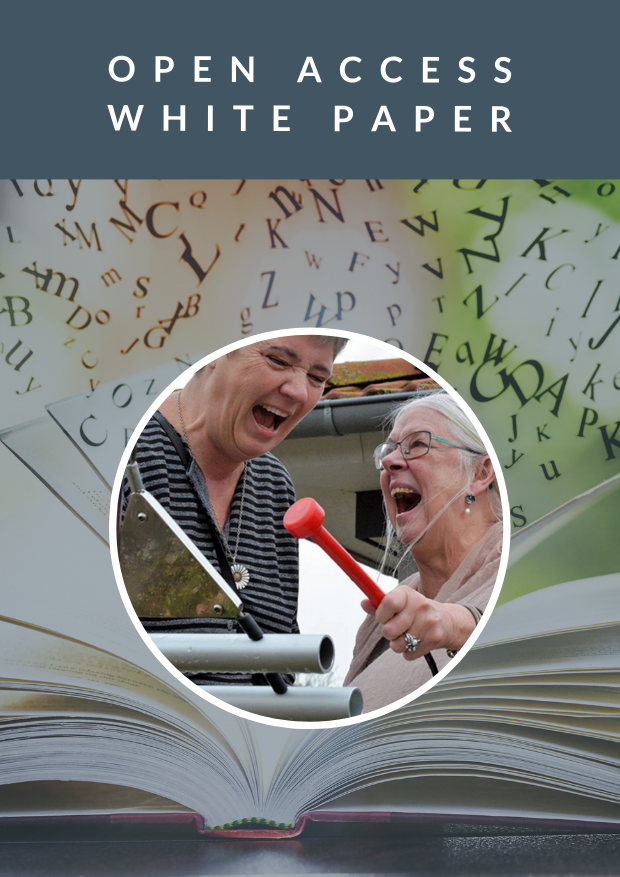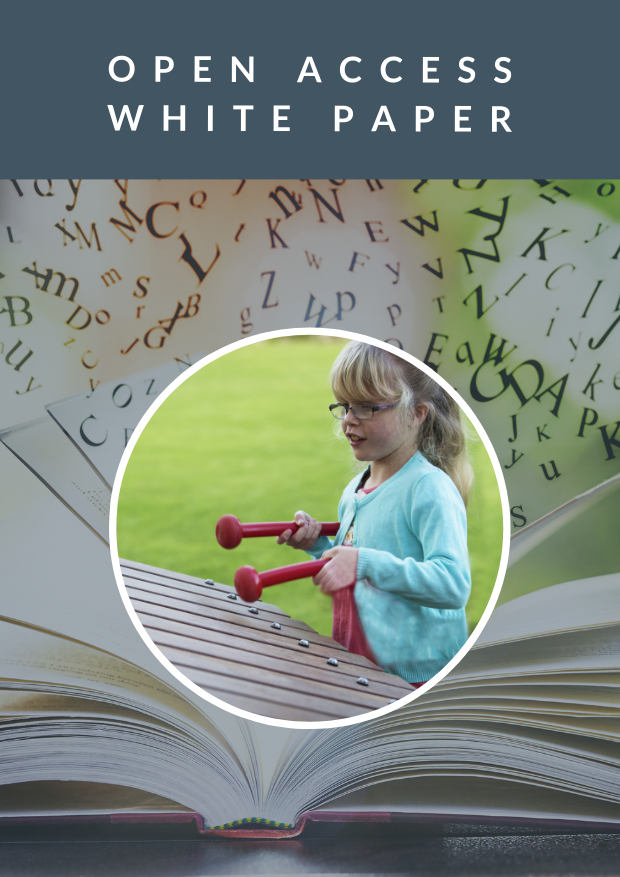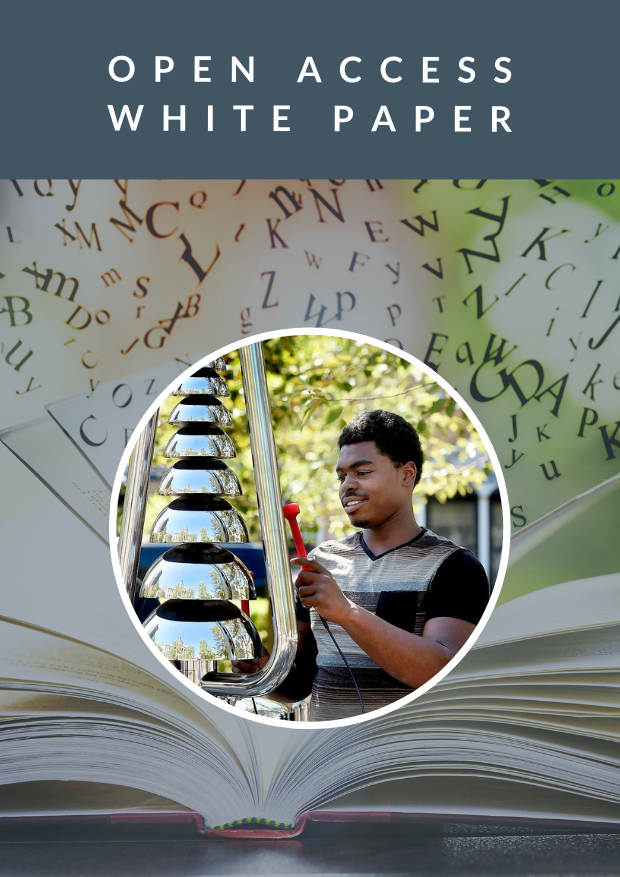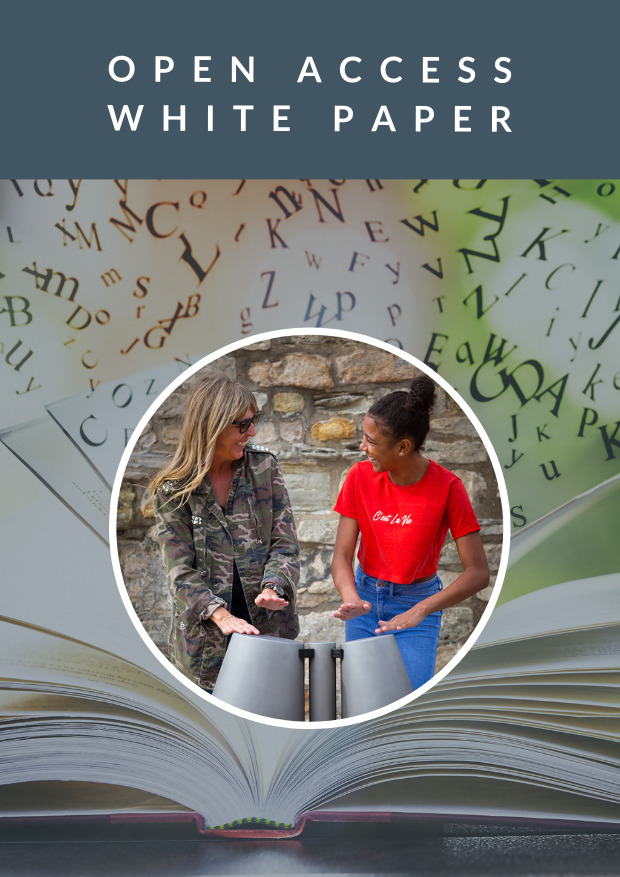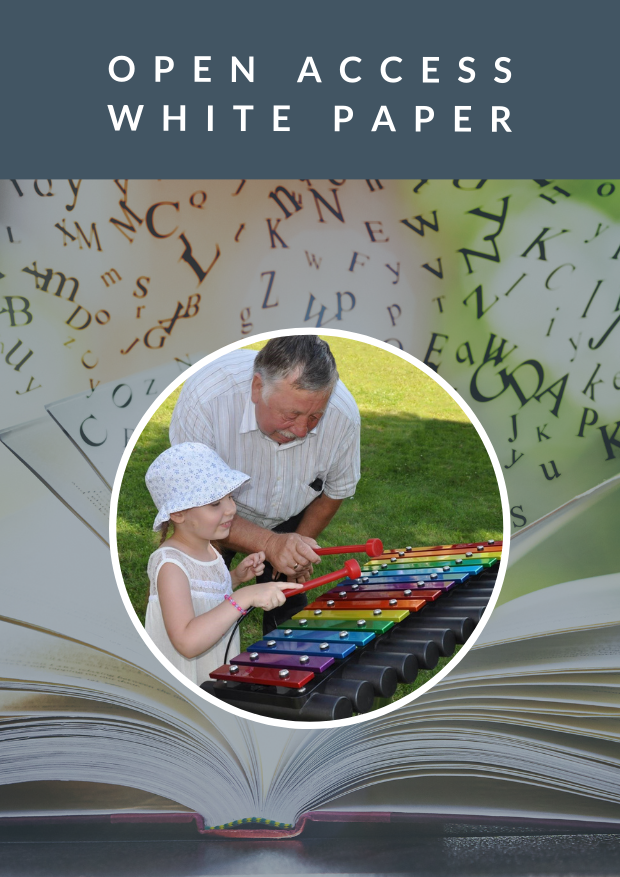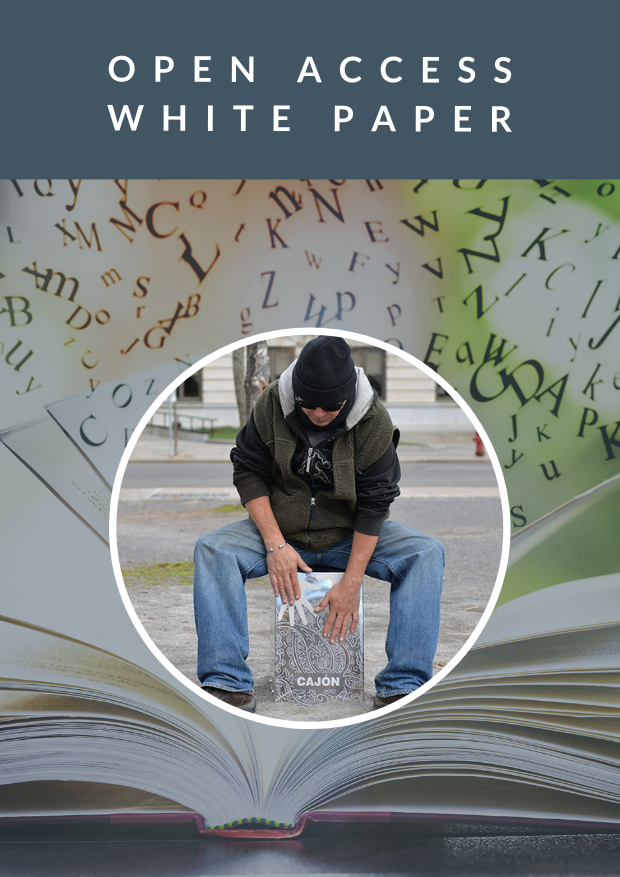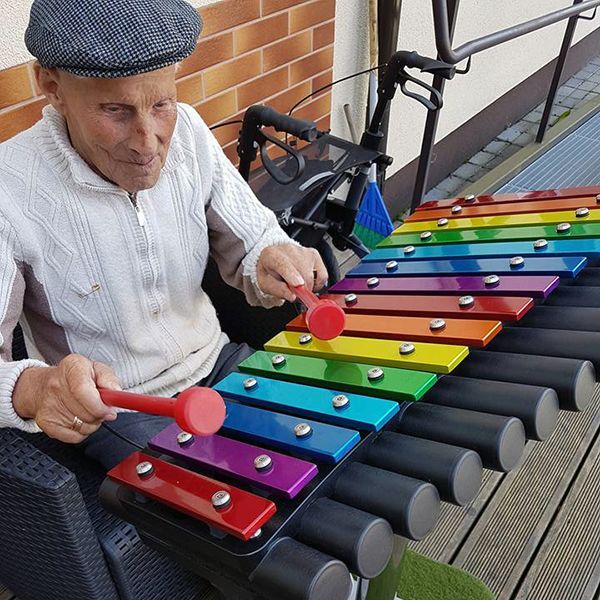Looking to boost your knowledge? Check out our range of white papers on various music, play, and health-related topics published here regularly.
With fresh and engaging content, our collection of white papers results from extensive research. Designed to give you knowledge and inspiration, these in-depth informational documents will define the benefits of music and inclusive outdoor musical play for specific situations.
Please revisit this page regularly to check for new papers or register here to be the first to read newly published papers.
